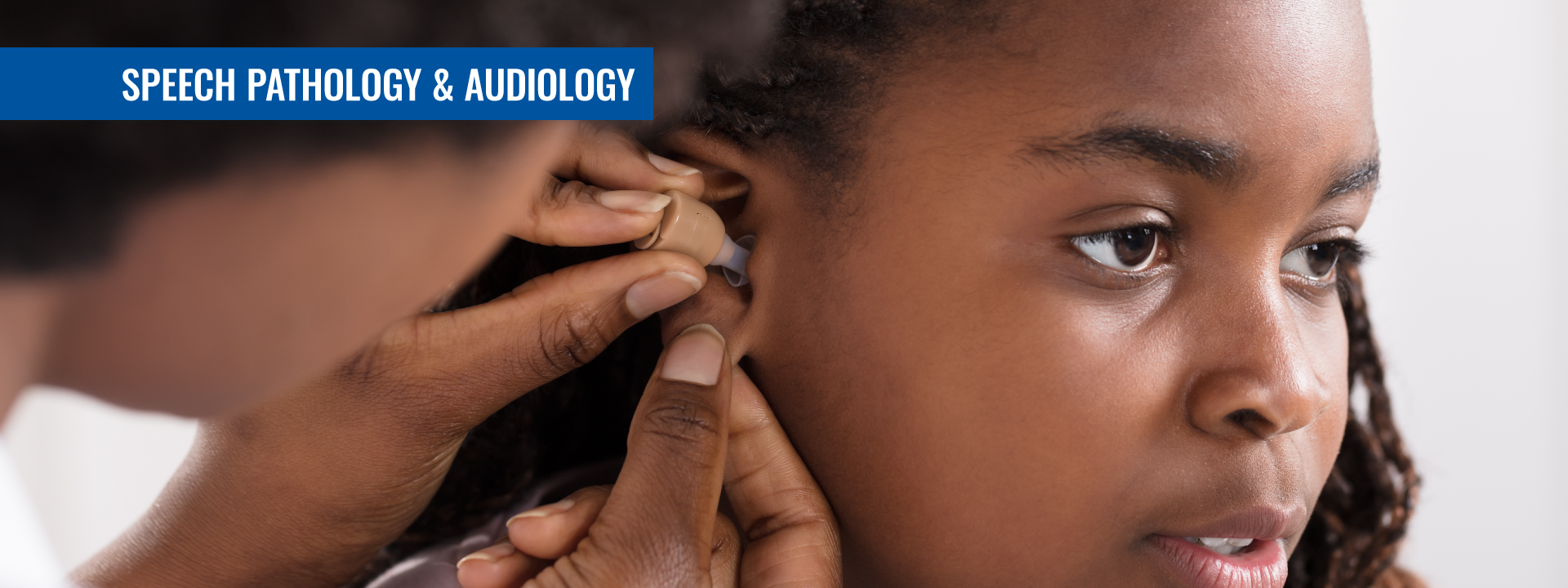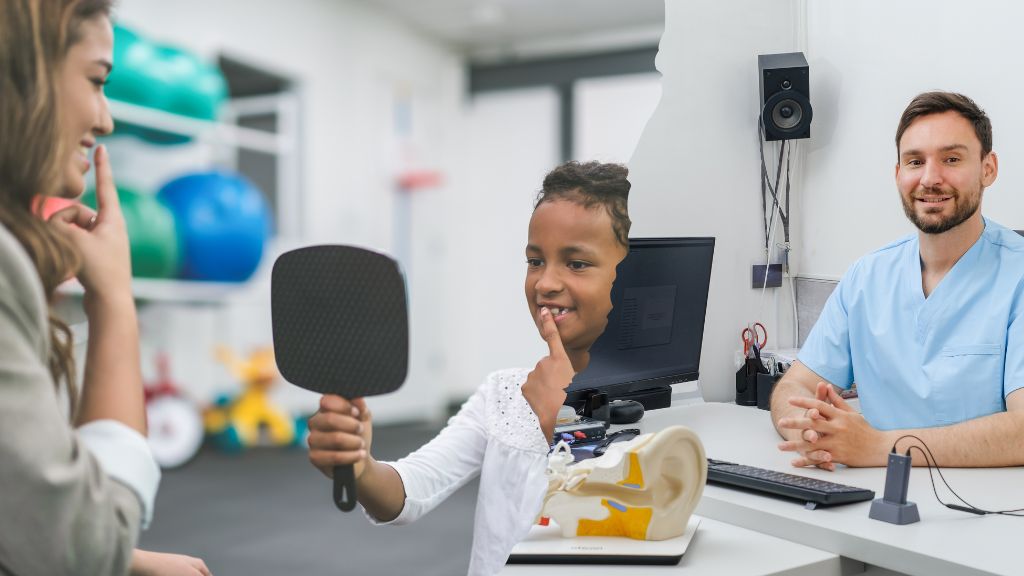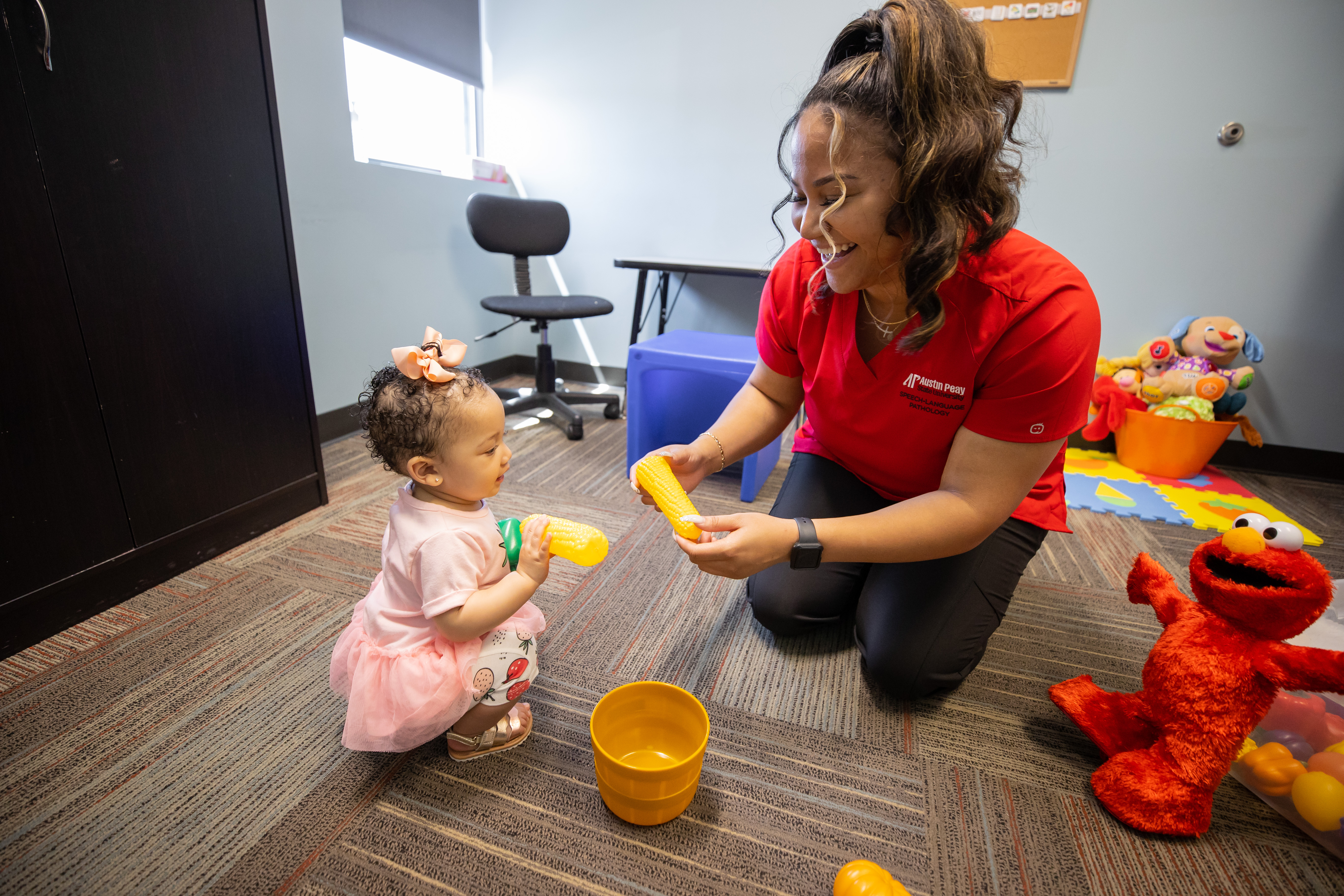Understanding How a Speech Pathologist Works with Various Age Ranges
Understanding How a Speech Pathologist Works with Various Age Ranges
Blog Article
Exactly How a Speech Pathologist Can Aid Improve Interaction Skills
Effective communication is a keystone of professional and individual success, yet several individuals deal with obstacles that impede their capacity to express themselves plainly. A speech pathologist is equipped to attend to these obstacles through targeted evaluation and treatment approaches customized to every person's needs. By employing evidence-based restorative techniques, they not only work to improve speech and language problems but also boost total communicative capability. Comprehending the multifaceted function of a speech pathologist reveals exactly how their proficiency can transform lives, welcoming a more detailed examination of the particular techniques and end results related to their method.
Understanding Interaction Conditions
Understanding interaction problems is crucial for recognizing how they impact individuals' capability to share themselves and involve with others. Communication conditions include a variety of troubles that affect speech, language, and social communication, usually hindering reliable interaction. These problems can emerge from various variables, including neurological conditions, developmental delays, physical problems, or psychological problems.
Speech conditions may materialize as troubles in expression, voice, or fluency manufacturing, impacting just how words are noticable or talked. Language disorders, on the other hand, include difficulties in understanding or utilizing language, which can hinder both verbal and non-verbal interaction. Social communication conditions are characterized by difficulties in the pragmatic aspects of interaction, such as taking turns in conversation or understanding social signs.
The repercussions of communication disorders are profound, influencing not just the individual's capacity to convey thoughts and emotions but likewise their social partnerships, educational possibilities, and overall lifestyle. Recognition of these conditions can foster empathy and support, motivating effective techniques for interaction and involvement. Understanding the intricacies of communication conditions is an essential action in the direction of promoting inclusivity and addressing the needs of those affected.
Role of a Speech Pathologist
Speech pathologists often play an important function in diagnosing and dealing with interaction conditions, utilizing a series of evidence-based techniques tailored per individual's requirements. These professionals deal with individuals across the lifespan, from children with speech delays to grownups recovering from strokes or terrible mind injuries. Their competence incorporates a variety of interaction concerns, consisting of articulation, fluency, language, and voice disorders.
In healing setups, speech pathologists use organized treatments created to improve interaction skills. They may apply techniques such as speech workouts, language games, and social interaction training to help with improvements in meaningful and receptive language abilities. Speech Pathologist. Additionally, they inform clients and their households regarding reliable interaction strategies and adaptive methods to navigate day-to-day interactions
Beyond straight therapy, speech pathologists work together with various other health care experts, educators, and caretakers to make certain a thorough technique to treatment. They advocate for customers by offering sources and assistance, allowing individuals to accomplish their interaction goals and boost their overall lifestyle. As experts in the area, speech pathologists are necessary in promoting efficient communication, promoting freedom, and enhancing social engagement for those with interaction difficulties.
Assessment and Diagnosis Process
The evaluation and diagnosis procedure performed by speech pathologists normally includes a thorough analysis to determine interaction disorders precisely. This process starts with a thorough medical history, where the clinician collects essential information about the person's clinical, instructional, and developmental history. Understanding the context of the person's interaction difficulties is important for an accurate diagnosis.
Complying with the situation background, speech pathologists use informal assessments and standardized examinations to examine various elements of communication, consisting of speech audio manufacturing, language redirected here understanding, expressive language, and social communication abilities. These evaluations are customized to the person's age and specific problems, offering useful data for evaluation.
Monitoring is additionally a vital component of the evaluation process, as it permits the medical professional to see firsthand exactly how the individual connects in natural settings. In addition, interviews with relative and instructors can offer understanding into the individual's communication difficulties across different atmospheres.
When the examination is total, the speech pathologist manufactures the findings to determine a diagnosis and suggest proper treatments. This extensive evaluation process guarantees that people receive targeted assistance tailored to their unique communication needs, laying the structure for efficient therapeutic approaches.
Restorative Techniques and Methods
Countless restorative methods and methods are employed by speech pathologists to attend to a variety of interaction conditions properly. One extensively made use of technique is articulation therapy, which concentrates on correcting speech seems with repeating and aesthetic signs. This technique is particularly useful for individuals with speech audio problems.
One more reliable technique is language intervention, which boosts both responsive and expressive language abilities. This may involve interactive activities that advertise vocabulary growth, sentence framework understanding, and conversational skills. In addition, speech pathologists frequently utilize social abilities educating to boost pragmatic language capacities, enabling people to navigate social communications more efficiently.
Fluency shaping and stuttering modification strategies are especially created to assist those experiencing fluency disorders. These methods assist customers develop smoother speech patterns and take care of the psychological and physical parts of stuttering.
Furthermore, augmentative and different communication (AAC) systems are used for people with serious interaction problems. These systems, which can include gestures, symbols, or digital tools, supply necessary support for efficient interaction.
Benefits of Speech Therapy

In addition, speech therapy can assist in establishing crucial listening and comprehension abilities, promoting much better interaction in discussions. People with cognitive-communication problems can also profit, as therapy focuses on strengthening memory and analytic capacities, crucial for efficient interaction.
One more crucial facet is the emotional assistance offered throughout treatment sessions. Speech pathologists create a secure atmosphere, motivating individuals to overcome anxiousness and stress associated to their interaction problems. This support can result in improved self-worth and overall psychological well-being.
In addition, early treatment through speech treatment can stop further problems, making sure that individuals reach their full communicative capacity. On the whole, the benefits of speech treatment prolong past plain speech renovation, positively impacting different measurements of life for those impacted by communication problems.
Final Thought
In recap, speech pathologists play an important duty in addressing communication disorders through evaluation, diagnosis, and customized therapeutic treatments. By utilizing evidence-based techniques, these specialists enhance individuals' speech Extra resources and language capacities, fostering improved clarity, Speech Pathologist fluency, and social interaction abilities. The advantages of very early treatment underscore the significance of looking for aid from speech pathologists, as their experience can dramatically enhance communicative potential, ultimately resulting in higher success in both professional and individual rounds.

Speech pathologists often play an essential function in identifying and dealing with interaction conditions, utilizing a variety of evidence-based techniques customized to each person's needs. As experts in the area, speech pathologists are crucial in promoting reliable interaction, promoting independence, and boosting social involvement for those with interaction challenges.

Report this page